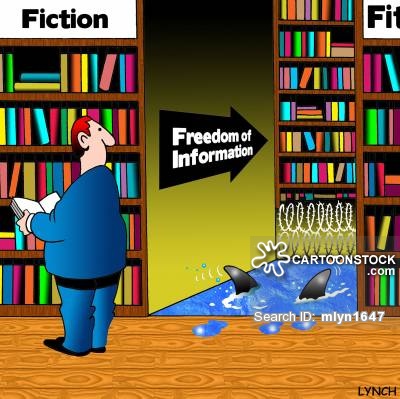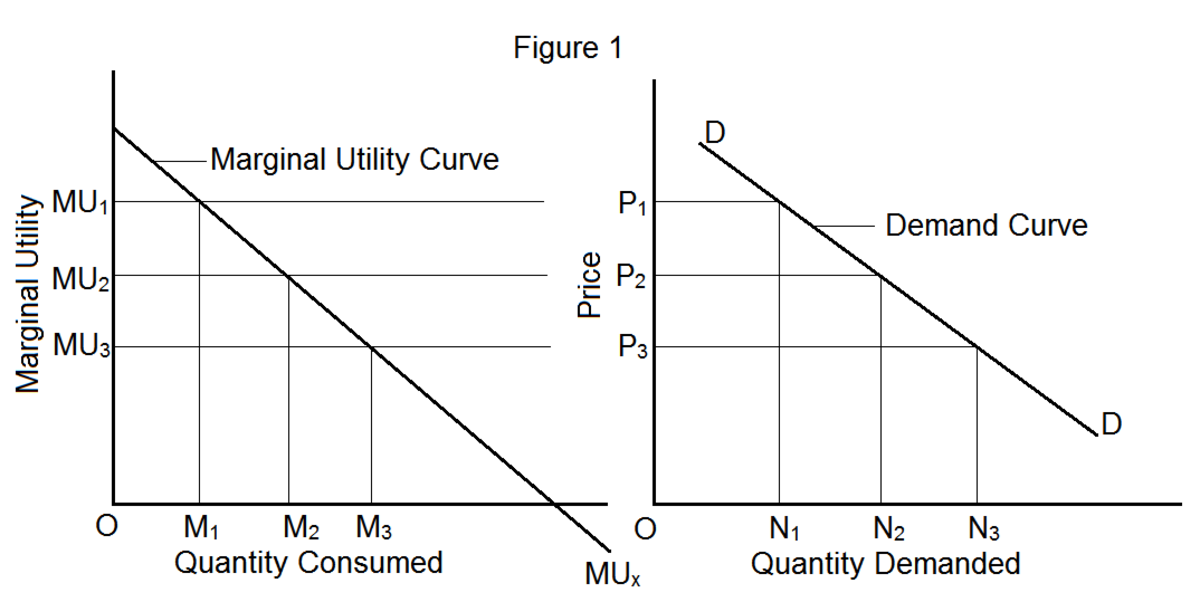Some more of My Doubts
Do we ever get fed up of our bad habits?
Why is it that some facets of human behavior is free from ‘theory of diminishing marginal utility’, though this theory is, the rule governing basic human conduct that can explain in full, the process of deriving and enhancing satisfaction? And why such a phenomenon occurs, that too, exclusively in the realm of bad habits?
I think one can safely say that we resort to various actions or activities to satisfy each of our needs, and a few among these happening to be termed as bad habits and a few others, the opposite, is only a temporal view which is susceptible to change. Shouldn’t the pattern of deriving contentment be the same, whether we speak of good habits or the bad ones?

Take our enjoyments. All of them come under the purview of this theory. We cannot continue with the same form of enjoyment for indefinite periods of time. If we like something, say, ice cream, the first cup, of which provides us with 100 units of happiness. The next cup shall be able to provide only 80 units of happiness, next, even less, and so on till we get ‘fed up’ of ice cream. The same is true for all matters of personal choice, mode of entertainment, habit or routine. For example, if we are in the habit of drinking tea every morning, we ourselves shall find an excuse for a change once in a while.
But this does not seem to apply for anything we are hooked on to. Whether it is some habits like smoking (a chain smoker), drinking (a habitual drinker), reading (a voracious reader), or anything we enjoy in its extremes, the state of ‘being fed up’ does not occur. Why?
That brings us to the fundamentals of habits. Everything good we do, is for meeting some demand, be it physical needs of the body or intellectual needs of the mind or both. Some of these may also be termed as spiritual needs. Whereas, what we consider as bad habits does not fall within the above discussion. If bad habit was intended to satisfy a need, the reduction in marginal utility as discussed above would have taken place, bringing it to a natural stop. That doesn’t happen. The very existence of elaborate and widespread arrangements for de-addiction, which can be seen in all societies, is enough to prove this point.
What then is a bad habit? What do bad habits do? Certainly none of our needs is being satisfied by a bad habit. Bad habits in fact are only certain, mainly repetitive, activities that we continue to be busy with, to prevent something else from occupying us. As the chosen activity does not satisfy any of the human needs, no cap occurs to its effectiveness due to ‘diminishing marginal utility’, and can continue to block those inconvenient thoughts from occupying our minds. As mentioned earlier, avoidance of such thoughts is of paramount importance in maintaining a comfortable state of existence, especially for the male. The widely observed peculiarity, a greater incidence of bad habits among the male of our species, is a silent proof of this. This can now be explained easily. They have more of ‘inconvenient thoughts’, to escape from.
What can language do?
The language is generally understood as a systematic means of communicating by the use of sounds or conventional symbols. We identify language as something that is closely linked with our life, its existence, consciousness and bliss. We invoke language in all our affairs. Whether to please or to nag, to applaud or to boo or to scold or to acclaim, no other human contraption is of greater avail than language.

However, this is also a fact. Much of the disturbances, hatred and violence, or other unpleasant happenings in our midst wouldn’t have been there, had our understanding of the language, been a little different. Also, our history would have been free of many chapters recounting events of considerable hostility, hatred, pain and suffering, not to mention the good that would have resulted from aiming our effort towards something not so destructive.
What, then, is language for, if not for communication?
As a first step towards an answer, assume, there is no language. (By language, I mean a structured system of symbols, with associated rules, grammar, etc.) What handicap do we face? What we can’t do?
Easily we can see that it is possible to continue with almost all the functions served by languages using some other human capability. Like, for communicating ideas, signs and actions can be of great help. In fact, even when we use language for communicating with others, it is the concurrent use of signs, actions or expressions that ultimately result in conveying the exact meaning. This is true when it comes to expressing, showing or acknowledging emotions as well. Therefore, in the primary sphere of its present use, the absence of language need not pose an insurmountable problem.
But we are at a loss, when it comes to, thinking. In the absence of a language, it becomes impossible to think, imagine or form a mental picture. Language thus can be identified more appropriately as the medium of thought.
The above inference had also been reached earlier by many philosophers, a notable one being Dr Susanne Langer, who in her books, ‘An Introduction to Symbolic Logic’ and ‘Philosophical Sketches’, dwells deeply on the role of language as a representation of logic through symbols. In this book, the notable fact that in a sizeable number of Nobel prizes awarded so far, the research work leading to the invention or discovery was conducted using a particular language, German, has been specially mentioned. This is true even for Nobel awardees from countries other than Germany, like USA or UK, who conducted their research in attachment to the ‘German’ chair of their respective institutions. The author attributes this to the capability of that language in forming new words, expressions, dependencies and the interconnections with significant ease, challenging one constantly with fresh thoughts and ideas.
We are in fact belittling language by terming it merely as a means of communication. By not selecting a language based on its appropriateness as a vehicle of thought and by selecting one based solely on the ease of communication, not only that we are losing whatever good that would have resulted from the involvement of a huge population with cognitive transactions, but also seeding possibilities of collisions and skirmishes, as individual preferences for communication need not be the same for all.
Shouldn’t we be more rational?
What also can Freedom of Information do?
I remember during my childhood days, the institutions or business concerns that commanded the greatest respect of society at large were the ones, whose main thrust used to be in finding new markets for products as well as familiarizing a market with new products. In any gathering or assembly, if there were people who were employees of such concerns, commonly called commission agents, the attention they cornered used to be big enough to effectively render all other participants a nonentity.

Reasons were very simple. It was the effort of these companies that enabled one to taste the best of things in life. Like, cheese from Australia, chocolates from Germany or tea from Assam, not to mention the multitude of articles from all over the globe, became a familiar object in other parts of the world thanks to these business houses. Almost every corner of the world having the potential to contribute something special, the position held by these houses continued to remain significant, adding to the aura.
But times changed. Better navigation, faster crafts and ease of communication brought each of the producers as well as the consumers closer than ever before, making the role played by the ‘commission agents’, a redundant one. Some of them continued to cling on to their business by helping people to find markets for a product as well as, products for a market. But with the technological revolution which made both these tasks a child’s play reinforcing their redundancy, it was inevitable that they leave the scene. Those who did not exit gracefully are bearing the brunt of public anger, whenever anything untoward happens in the supply, distribution or consumption of things in a society.
(Naturally, many questionable methods were also needed to be used by such people to remain in the reckoning, which involved either creating a fresh want or a fresh means of gratifying a want, where none existed. The ill effects of such random interventions in a market, notorious for its potential to cause instabilities in supply and demand, are always with us, causing economic upheavals at odd occasions)
A parallel can be found in one of the most celebrated tools of empowerment for the common man, the right to information. In fact ‘right to information’ is relevant only when the information is sought by a person who is aggrieved directly as a consequence of whatever the information may refer to. In all other cases, the role played by the information seeker is quite similar to the one played by the ‘commission agent’ we saw earlier. The relevance of information seeker (The third party, as far as information goes!) is dependent on the outlook displayed by the society. In a progressive society, it can be gathered that people will either be capable of looking after their well being or capable of learning to be so. In both these cases, there is no place for the presence of a ‘third party’ with the right to information. The information revolution inevitably will result in them leaving the scene sooner or later, but now is the time to let people train themselves in making their own decisions. Not only that it will enable a graceful exit for the right to information (RTI) activists, but also empowers each and every one of the populace by necessitating greater alertness and involvement in RTI sphere.
(Doubts may be expressed whether the comparison between the monetary gratification received by the commission agent and the ‘information’ gratification amassed by the RTI activist, can be considered as a proper one. It is. In fact, the RTI activist, by satisfying a superior need as described by Maslow’s hierarchy of human needs, in reality ends up gratified much more than a mere commission agent, who by gathering certain wealth or other monetary benefits would have managed to gratify only certain basic, lower ones in the ordered grouping of needs)
Here too, aren’t we being irrational in encouraging the unchecked use of RTI?









